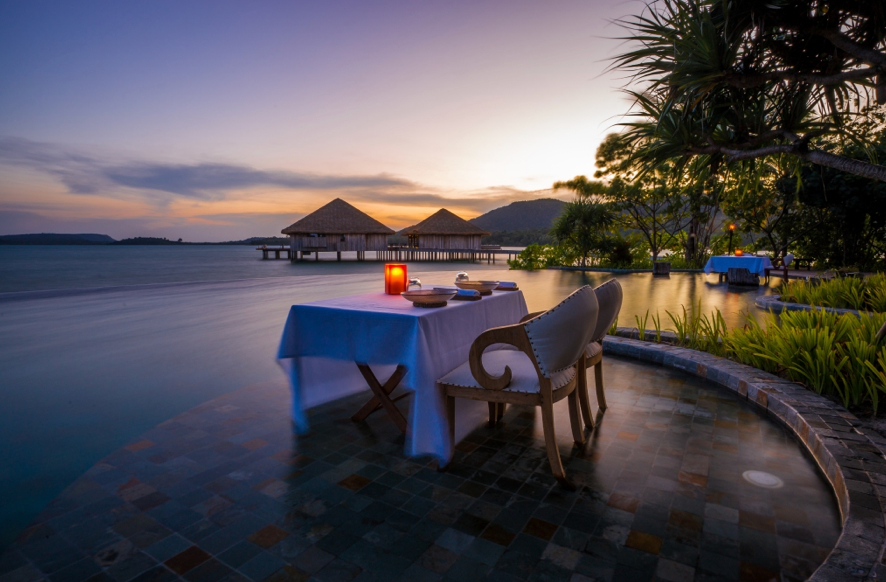Introducing Melita Koulmandas, a trailblazer in sustainable travel and the Chief Executive Officer of Song Saa Private Island
- Wilson Lim
- Jul 10, 2024
- 3 min read
Melita Koulmandas has established a Cambodian island utopia focused on ecological balance and rejuvenating pleasures.

What aspects of Cambodia, and specifically Song Saa, captivated you?
I relocated to Cambodia in 2004. I possess an adventurous spirit and relish exploring faraway areas; I was captivated by the essence of Cambodia through its people, energy, and vitality. At that time, Cambodia was still emerging from the Khmer Rouge era, and it is a nation in the process of healing until today. Seventy percent of the population was under the age of 30 at that time, resulting in a notably youthful and lively atmosphere. The prevailing cheerfulness seemed to counter the sentiments that individuals likely harbored about the country during that period.

I had recently spent two weeks circumnavigating the Koh Rong archipelago, which was unspoiled, and the sea was transparent. We would halt along the beaches, park overnight, and sleep aboard the fishing boat, while monkeys approached the water's edge. It was an exceptional experience.
What is the significance of individuals experiencing Cambodia?

Cambodia is a uniquely significant location, and despite being situated amongst its neighbors Thailand, Vietnam, and Laos—countries with extensive histories and established tourism identities—Cambodia is still in the process of defining its own identity. Visitors to Cambodia invariably depart with a profound sense of authentic human connection to the country. Regardless of whether one is exploring the temples of Angkor Wat, traversing Phnom Penh, or descending to the shore, there exists an unparalleled sensation of genuine connection in Cambodia. Cambodia possesses a distinct character, a unique sense of place, and a rich history.
What distinguishes Song Saa's approach to sustainability and community programs from similar developments?

Initially focused on community initiatives without the intention of establishing a hotel, we have meticulously crafted a hotel experience for our guests that has been integrated from the outset, rather than retrofitting a hotel to accommodate this idea. This encapsulates the essence of regenerative tourism development design. We examine the living system and explore methods to function within it and improve these systems. Our efforts are conducted through the independent nonprofit organization, Song Saa Foundation. Should the hotel cease operations tomorrow, the foundation would persist, indicating that the programs we engage in are not merely for the hotel's benefit. They exist since that is our necessity, hence everything is community-oriented.
Do you believe that duty and luxury are inherently contradictory? Is coexistence possible?

I assert that they can coexist. Initially, it is imperative to comprehend the meaning of luxury within this context, which has significantly altered in recent years. We refrain from using the term "luxury," having done so for some time, and instead refer to high-end or responsible tourism. Visiting a country such as Cambodia, especially at a luxury level, fosters empathy and awareness via engagement with its people and culture, which travelers carry home. The high-end traveler significantly contributes by seeking to comprehend the history and locale they visit, often resulting in donations to our programs, thereby fostering awareness and support.
What is your perspective on the evolving dynamics of sustainability-focused tourism in recent years, particularly in Southeast Asia, and the transformation of consumer expectations?

I believe they have undergone significant evolution. There appears to be an increased knowledge among the majority, indicating a significant transition from the visitors of two or three decades prior. Individuals today identify as travelers, seeking experiences and connections. Historically, individuals would reside in large hotels, whereby entering, they would be enveloped in a cocoon-like experience. Individuals now seek to experience emotions, establish connections, acquire knowledge, and develop, which is profoundly significant.










Comments